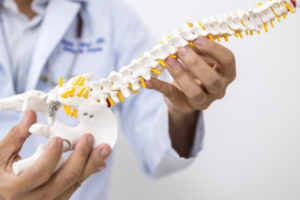
Managing heart disease in athletes requires skilled care. Cardiologists play a key role in this process. They provide expertise in understanding heart health, creating treatment plans, and monitoring recovery. Their work ensures athletes can perform safely and effectively. Just as the newnan diabetic wound care center offers specialized care for wounds, cardiologists offer tailored support for heart health. Their guidance helps athletes maintain peak performance while managing their condition.
Understanding Athlete’s Heart Health
Cardiologists first focus on understanding the unique demands on an athlete’s heart. These professionals use various tests to assess heart function. Tools like echocardiograms, stress tests, and EKGs help in this evaluation. With this information, cardiologists can identify any potential issues early.
Regular monitoring is crucial. Athletes often push their bodies to the limit. This stress can affect heart health. Cardiologists work to recognize signs of strain or damage. Early detection allows for timely interventions, reducing the risk of severe complications.
Creating Effective Treatment Plans
After evaluating heart health, cardiologists develop personalized treatment plans. These plans aim to manage heart disease while allowing athletes to continue their activities. Treatment often includes:
- Medications to control blood pressure or cholesterol
- Dietary adjustments for better heart health
- Specific exercise regimens to maintain fitness safely
Each plan is tailored to the athlete’s needs. This personalization is crucial for effective management. Cardiologists adjust treatment based on ongoing assessments. This dynamic approach helps athletes adapt while staying healthy.
Monitoring and Recovery Support
Continuous monitoring is necessary for athletes with heart disease. Cardiologists routinely check progress and make necessary adjustments. This vigilance helps prevent setbacks and supports steady recovery.
During recovery, cardiologists provide guidance on safe levels of activity. They help athletes understand their limits and how to push them safely. This support is vital to avoid overexertion and potential harm.
Comparing Athlete and Non-Athlete Heart Care
| Aspect | Athlete | Non-Athlete |
| Activity Level | High | Moderate to Low |
| Heart Monitoring Frequency | Regular and Intensive | Periodic |
| Treatment Customization | Highly Personalized | Standard Protocols |
Collaborating with Other Specialists
Cardiologists often collaborate with other healthcare providers. This team approach enhances the care athletes receive. Specialists in nutrition, physical therapy, and sports medicine offer additional perspectives. This collaboration ensures comprehensive support for heart health.
For example, nutritionists can develop heart-healthy meal plans. Physical therapists tailor exercises to strengthen the heart without strain. This teamwork ensures a holistic approach to managing heart disease. Heart-healthy living resources can provide further guidance on lifestyle adjustments.
Conclusion
Cardiologists are essential in managing heart disease in athletes. Their expertise helps athletes safely maintain their active lifestyles. Through personalized care plans and regular monitoring, they ensure heart health remains a priority. The cooperation between specialists further enhances this care, providing a comprehensive approach to athlete wellness.














